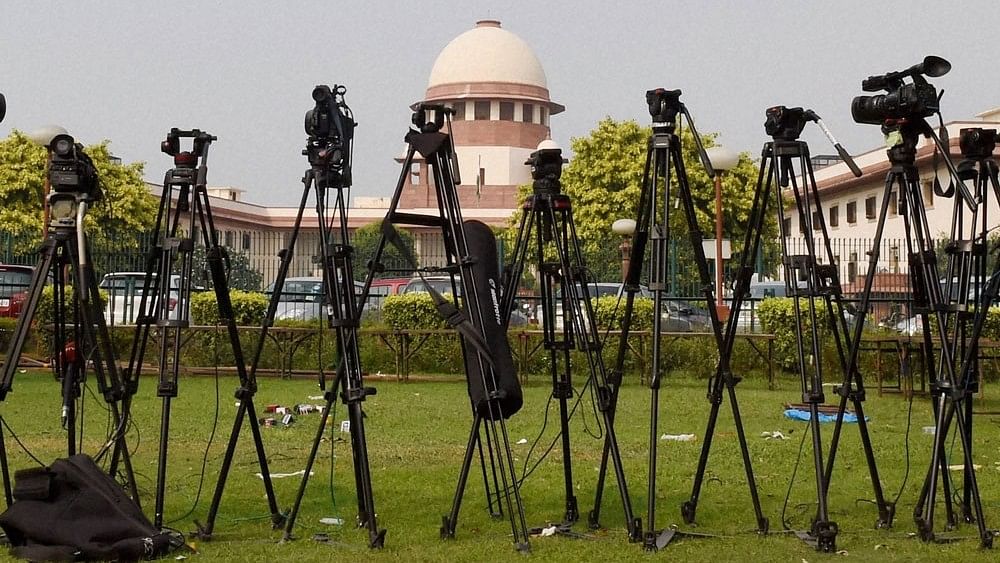
The Supreme Court of India.
Credit: PTI File Photo
The Supreme Court on Monday said that a fine of Rs 1 lakh imposed on a television news channel by a self-regulating body for violating codes was disproportionate, even as it observed that the media went berserk in covering actor Sushant Singh Rajput's suicide.
The top court stressed that it does not want to impose pre-censorship or post-censorship on the media but that the self-regulation of television channels has to be effective. It also suggested that penalties imposed by the News Broadcasting and Digital Standards Authority (NBDSA) - an independent body under the News Broadcasters and Digital Association (NBDA) upon TV channels must be proportionate to profits.
A bench of Chief Justice of India D Y Chandrachud and Justices J B Pardiwala and Manoj Misra noted that unless rules are made stringent, there is no compulsion on TV channels to comply with the codes.
The court indicated that it would strengthen the regulation of TV channels.
The bench was hearing an appeal by the News Broadcasters Association challenging a Bombay High Court judgement, which had made adverse observations about the lack of teeth in the self-regulation of TV channels.
During the hearing, the bench said, "The fine must be of proportion to profits you make from that show. We don't want to impose a pre-censorship or post-censorship on the media…but the self-regulatory mechanism has to be effective”.
In the context of the media frenzy in the Sushant Singh Rajput case, the bench noted that multiple news channels went berserk and some TV channels virtually pre-empt the criminal investigation in such cases.
The bench proposed to strengthen the framework and added that it has seen the up-linking and downlinking guidelines.
The bench said it would tweak the Bombay High Court judgement, strengthening the regulations.
The bench also asked senior advocate Arvind Datar, representing the News Broadcasters Association, to seek suggestions from former apex court judges A K Sikri and R V Raveendran on the self-regulation of TV channels.
Datar suggested that if adverse orders are passed against a channel, then their license should not be renewed.
Solicitor General Tushar Mehta, representing the Centre, said that there is a three-tier system with regard to self-regulation and added that there are other associations representing other channels, whom the Centre would place on record in this matter.
